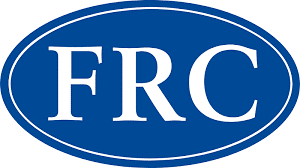by John McCarthy Consulting Ltd. | Mar 29, 2019 | Blog, News

As estate agents will tell you, the three most important things to do with selling your property are ‘location, location, location.’ Well, the same applies to preparing for a Quality Review visit from your professional body. The three P’s to a successful Quality Review visit are Preparation, Preparation, Preparation.
The main problem area that underpins most issues that arise in audit files is lack of written evidence, collected on an audit assignment, that is sufficient and appropriate to allow the auditor to give an audit opinion that the financial statements are true and fair.
Part of the preparation will include keeping up to date with the audit regulations, independence rules on issues like ‘long association’ and fee dependency, audit and accounting standards currently in issue and being aware of the technical arguments that may arise. To test your knowledge on one of these technical points in particular, try this question:
‘Now that Practice Note 16 (Bank Reports for Audit Purposes) has been withdrawn by the Financial Reporting Council, auditors don’t need to waste time chasing bank enquiry responses any more. True or False?’
For the answer to this and other questions on Preparing for an Audit Quality Review Visit, go to our website and download the 41-minute-long webinar, on this topic. Receive a CPD certificate for your newly gained knowledge, on successful completion.
All our webinars are accessible at any time (for 12 months from date of purchase) here.
by John McCarthy Consulting Ltd. | Mar 29, 2019 | Blog, News

Most gains/losses should normally pass through profit or loss (Income Statement), unless they are required or permitted to pass directly through reserves.
Those items likely to be shown in Other Comprehensive Income or the separate Statement of Comprehensive Income include:
- unrealised surplus/deficit on revaluations, other than investment property;
- currency translation differences, other than trading transactions, which are taken directly to reserves (usually arise in consolidated accounts).
The tax effect of any gains/losses must be shown for each item of Other Comprehensive Income, either separately on the face of the primary Income Statement and in the taxation notes to the financial statements.
For more on Common Errors that often arise in FRS 102 Accounting – see our webinar called Common Errors in FRS 102 Accounting
All our webinars are accessible at any time (for 12 months from date of purchase) here.
by John McCarthy Consulting Ltd. | Mar 19, 2019 | Blog, News

Challenge your knowledge on the Solicitors Accounts) Regulations 2014 with this short quiz:
- ‘I received a cheque from a client on the balancing date, the client ledger card was updated to show receipt of the money, but the cheque was not lodged to the bank until two weeks later. The reporting accountant’s report may show this as an outstanding lodgement.’ True or False?
- Where a solicitor acting for the purchaser receives monies from the purchaser’s lender and the cheque is drawn in the solicitor’s name and the proceeds are required to be transferred to the vendor “without delay”, the cheque may be transferred to the vendor without being lodged to the Client Account. True or False?
For the answers to these and all your other questions – see our on-demand webinar here: Solicitors Accounts Regulations 2014.
For on-demand webinars on other developments in Investment Property Accounting, FRS 105, Common Errors in FRS 102 Accounting and the latest on FRS 105 and company law, visit our new online webinar training website. Once viewing is completed customers will receive a CPD Certificate confirming their learning.
by John McCarthy Consulting Ltd. | Mar 14, 2019 | Blog, News

The latest on Investment Property Accounting under FRS 102
Challenge your knowledge on Investment Property Accounting under FRS 102.
Some of the rules around the accounting for investment properties under FRS 102 have changed for accounting periods commencing 1 January 2019.
Test your knowledge of these changes with this quick quiz.
- The changes to the investment property rules including those about ‘undue cost or effort’ introduced in the Triennial Review come into effect no earlier than 1 January 2019. True or False?
- If an investment property company early adopts the investment property valuation changes allowed under the March 2018 version of FRS 102 in its financial statements for the year ended 31 December 2018, what would its transition date be?
For the answers – see our webinar here Investment Property Accounting. Once viewing is completed customers will receive a CPD Certificate confirming their learning.
For webinars on the developments in Investment Property Accounting, FRS 105, Common Errors in FRS 102 Accounting and the latest on FRS 105 and company law, visit our new online webinar training website.
by John McCarthy Consulting Ltd. | Mar 5, 2019 | Blog, News

In spite of efforts to make UK registered companies disclose their ownership through the people with significant control (PSC) register, thousands of companies don’t comply with the rules brought in to counter fraud and money laundering.
According to a 2018 Freedom of Information request to Companies House by Fortytwo Data (now Napier), over 57,000 UK businesses are not yet compliant with new regulations.
Similar requirements are in the process of being introduced in Ireland, called the Beneficial Ownership Register to be maintained by the Companies Registration Office (CRO), as part of the enforcement of the EU Fourth AML Directive.
It is a criminal offence not to follow the PSC/Beneficial Ownership requirements, with potential sanctions including fines for the companies involved and up to two years in prison for the culpable individuals.
PSCs/Beneficial Owners, are natural persons who own directly or indirectly at least 25% of a company’s shares or control at least 25% of its voting rights, or have control over appointments to the board of directors.
The PSC/Beneficial Ownership Registers are designed to reduce the ability of money launderers to hide and funnel their ill-gotten gains, using apparently legitimate corporate structures.
For more up to date information on developments in company law and anti-money laundering, visit the new online webinar training section of our website. Once viewing is completed customers will receive a CPD Certificate confirming their learning.









